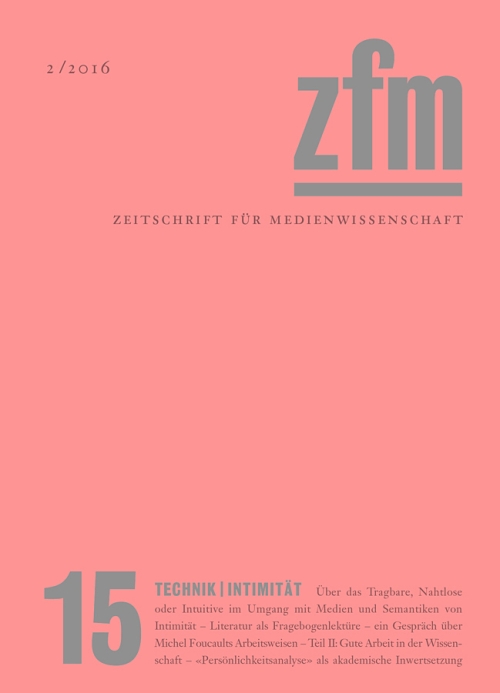Foucault
Die Materialität der Arbeit
Abstract (Deutsch)
In dem Gespräch mit Daniel Defert, das Alain Brossat und Philippe Chevallier Ende 2015 in Paris geführt haben, spricht der Philosoph und Aktivist, der bis zu Michel Foucaults Tod dessen Lebensgefährte war, über die «Materialität» der Arbeit Foucaults, seine Gewohnheiten, Rituale und Disziplinen. Dabei tritt die Medialität der philosophischen Denkarbeit in den Vordergrund, die sich nicht im luftleeren Raum vollzieht, sondern geleitet wird von den Archiven und Bibliotheken, aber auch den Schreibwerkzeugen und Kommunikationsmitteln, in denen und durch die sie sich entfaltet. Die Fülle und scheinbare Heterogenität von Foucaults Denken und seiner Medien – Bücher, Interviews, Vorlesungen, Aufrufe, Diskussionsrunden, etc. – ist für Defert Ausdruck eines Denkens, das sich durch Verschiebungen und Wiederverwertungen bereits anders bearbeiteten Materials entfaltet. Damit eröffnet dieses Gespräch auch eine spezifische Perspektive auf die derzeitige Historisierung des Foucaultschen Denkens, das hier eben nicht zum metaphysischen System gerinnt, das eine neue Wahrheit zutage fördert, sondern vielmehr als denkende Bewegung, Verschiebung, Aneignung und «kreative Wiederbenutzung» erscheint.
Abstract (English)
Foucault. The Materiality of His Work
In this conversation with Daniel Defert, conducted by Alain Brossat and Philippe Chevallie in Paris at the end of 2015, the philosopher and activist, who was Michel Foucault’s partner until his death, discusses the «materiality» of Foucault’s work, his habits, rituals, and discipline. In the process, the mediality of philosophical mental work comes to the foreground, as work which does not happen in an airtight space but is guided by archives and libraries, as well as by writing tools and the means of communication in and through which it unfolds. The richness and apparent heterogeneity of Foucault’s thought and media – books, interviews, lectures, appeals, discussion, etc. – are for Defert an expression of a thinking that develops itself by shifting and recycling materials that have already been processed in different ways. The conversation thus opens a specific perspective towards the current historicization of Foucault’s thought, which here is not solidified as a metaphysical system that seeks to unveil a new truth, but instead appears as a thinking movement, displacement, appropriation, and «creative reuse.»
Bevorzugte Zitationsweise:
Die Veröffentlichung ist rechtlich geschützt, siehe auch § 38 UrhG.
